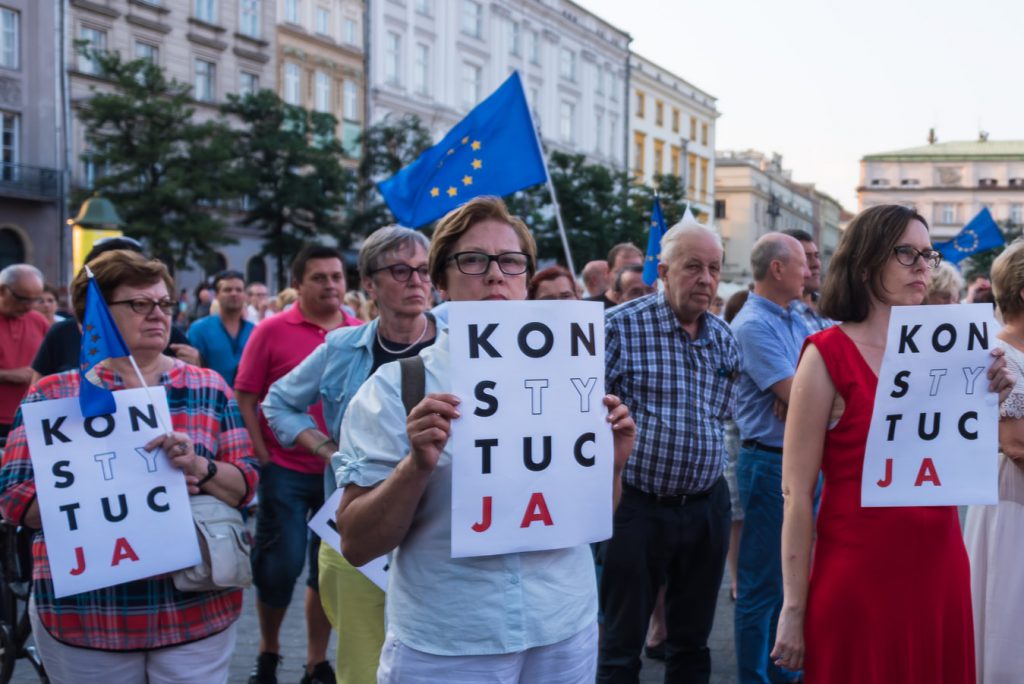The Federation for Women and Family Planning (FWFP) was established in 1992 in response to a fierce debate surrounding the restriction of women’s access to abortion in Poland. FWFP is the only registered organisation working on sexual and reproductive health and rights in Poland. This puts them under a double pressure as they try and help all those needing it while staving off the constant threats to its staff and physical premises. Ahead of the now-postponed presidential elections, EuroMed Rights asked them to sum up the state of the debate around Women’s Rights.
EuroMed Rights: What do you perceive as the current, most severe threats to women’s rights in Poland?
Federation for omen and Family Planning: “In Poland, there is currently a very strong anti-gender discourse which is disseminated by a number of powerful organisations, echoed in state-run media, and is effectively being institutionalised under the current government. By reframing narratives and privileging discourse which centres on ‘the protection of the family’, tradition and religion, women’s sexual and reproductive rights, their right to live without the fear of violence, and the fundamental rights of LGBTQI+ people are increasingly under threat.
The government’s refusal to sign the final statement of the UNFPA Nairobi Summit[1] last year, the Institute of Lawyers’ (Ordo Iuris) proposal to make substantive (and reductionary) changes to the Polish Act on Violence Against Women, and the recent parliamentary proposal to re-introduce strict restrictions on abortion; these are all key examples of how the anti-gender narrative is being translated into policy. These decisions have a direct effect on women’s and LGBTQI+ persons rights.
Unfortunately, this narrative has also found a very fertile ground in Polish society as it speaks to a majority of people who are embedded in traditional values. It has for instance given rise to popular pro-life movements, widespread support for the suspension of sexuality education in public schools and the worrying creation of zones which respect the ‘Charter of Families’ (or otherwise described as anti-LGBTQI+) in numerous regions across Poland.”
Are you optimistic about the advancement of women’s sexual and reproductive rights in Poland?
“Work to improve these rights remains extremely difficult and controversial and the stigma surrounding abortion does not look to be subsiding in any real way. However, a growing sense of the public is being shocked by acts of violence perpetrated against women. This is giving the FWFP and its network of partners opportunities (although restricted) to promotw and protect women’s rights.
There is also some hope to be found in the counter-currents to the political and social developments described above. The last national elections put 40 left-wing representatives in the Parliament and a number of Polish members of the European Parliament are actively pro-choice, which gives organisations like the FWPF some political support. Furthermore, growing social discontent with powerful institutions like Ordo Iuris and the continued efforts of NGOs to further expose the nefarious ways in which they work could contribute to a fundamental change in Poland’s socio-political structure in the future.
Polish politics has been unpredictable in recent years but, all things considered, it would be optimistic to expect a sea-change in the upcoming elections which would end the term of the Law and Justice Party. However, the FWPF remains committed to the protection of women’s human rights, irrespective of the political context in which this battle takes place.”
[1] By signing the final statement at the Nairobi Summit on ICPD25 (Nairobi, Kenya, 14 November 2019), partners committed to ending all maternal deaths, unmet targets on family planning and gender-based violence and harmful practices against women and girls by 2030. Poland, Brazil, the United States and 9 other countries refrained from signing this statement. (https://www.unfpa.org/press/nairobi-summit-icpd25-ends-clear-path-forward-transform-world-women-and-girls)

